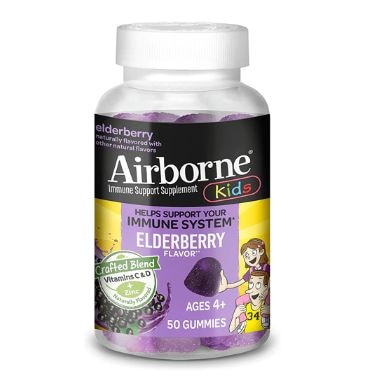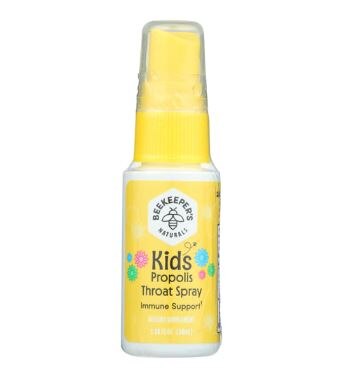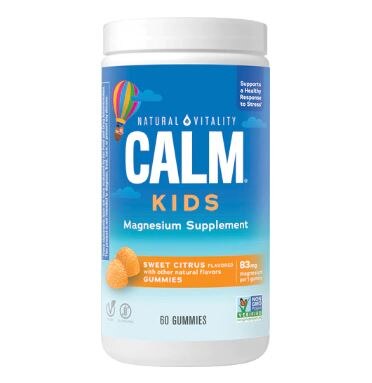Winter is here, which invariably seems to bring a spate of colds and flu to many households, especially those with young children. In fact, according to Nipunie S. Rajapakse, M.D., M.P.H., a Mayo Clinic pediatric physician, it’s considered normal for many babies, toddlers, and preschoolers to have as many as 12 colds a year. These may include symptoms lasting up to two weeks, and often longer with a persistent cough.
The reality is that children of all ages are continuously exposed to infectious pathogens in their daily lives. In fact, there are at least 200 different cold viruses that are continuously mutating. So why do some kids seem to fall prey to every circulating germ, while others rarely fall ill? It turns out that the most important barrier between kids and those ubiquitous viral bugs is their very own immune systems.
And yet, even healthy children can have frequent colds. On average, parents may see up to eight viral infections a year, or even more for tots in daycare and elementary school. Since your child is regularly exposed to new viruses, this can seem like a continuous cycle. So, how can you help your little ones defy the odds and stay well this winter? These tips can help.
Colds Going Around? Try These Winter Wellness Tips for Kids.
1. Nip illness in the bud
Addressing the early warning signs of illness, such as fatigue, headache or a scratchy throat can often prevent it from fully manifesting. Just like adults, children can run short on sleep, grapple with stress and cut corners on healthy eating, all of which takes a toll on well-being. Bottom line: It is far easier to prevent a viral infection than to fight one.
Fortunately, the same actions that help us recover from illness are also the best prevention tactics, such as getting plenty of rest, consuming healthy fluids and benefiting from cold and flu-fighting helpers like vitamin C in liquid, chewable, or capsule form, plus herbal support, such as this Echinacea-Elderberry Herbal Syrup or this Kids Cough & Mucus Immune Syrup.
How about wellness shots? These offer a fun, effective way to help stop illness in its tracks. Start with fresh juice or lemonade, add a splash of this ImmuniKid Liquid Children’s Immune System Support, plus some tasty liquid vitamin D and top with elderberry syrup. Voilà! It’s best to start out mildly, making these more potent over time. Learn more about DIY wellness shots here.
2. Brighten the menu
While diet is important for good health, many parents understand that being militant about nutrition can backfire. Naturally, it would be beneficial to delete sugar from your kids’ menu, especially since it can undermine immune health and promote chronic inflammation, but that may not be realistic. Therefore, when it comes to healthy eating, it’s often better to add than subtract.
To that end, stock up colorful, fresh produce, especially items that your child has enjoyed in the past. Keep a pretty fruit bowl in sight and organize glass containers in the fridge with pineapple chunks, ripe berries, veggies with dip, pre-made “ants-on-a-log” and similar items. This enables you to start “crowding out” sugary/junk products, gradually replacing them with wellness-supporting fruits and veggies which are also rich in prebiotics, the nondigestible portion in certain foods that promotes the growth of beneficial microorganisms in the intestines.
You might also regularly offer kids a yummy Monkey Shake, rich in immune-supporting protein, which you can blend up in a snap with plant-based milk, frozen banana chunks and a scoop of superfood, protein or other healthy smoothie additions. Add ice to make it extra thick and frosty, and garnish with organic chocolate chips.
3. Understand the role of stress
Can daily stress affect your child’s immunity? One study examining psychological stress in children found it to play a role in many immune-related problems. For example, kids in tense home settings showed both low immune activity and elevated levels of cortisol. Too much of this stress hormone can disrupt many of your child’s body’s processes and increase the risk of health problems including:
- Anxiety
- Depression
- Digestive problems
- Headaches
- Muscle tension and pain
- Heart disease, heart attack, high blood pressure and stroke
- Sleep problems
- Weight gain
- Memory and concentration impairment
One way to help kids manage stress is to understand root causes. Beyond their personal worries, about friends or school, for instance, children may feel anxious about family problems they can’t fix, such as parental discord, money troubles or a major family illness. You can help your children cope better by discussing the futility of worrying about things beyond their control. Additionally, consider positive, stress-busting actions like outdoor play, breathwork, yoga, art therapy and/or counseling.
4. Hydrate creatively
Did you know that more than half your body weight consists of water? Every cell, tissue and organ requires this vital fluid to function properly. So how much water does your child need daily for optimal health? A useful guide is one ounce for every two pounds of body weight. So, a 100-pound child, for example, should be drinking around 50 ounces of water each day, or about 6 cups, while a 50-pound tot needs at least 25 ounces, or 3 cups.
If your child falls short on water, offer other healthy fluids too, like fresh juice and caffeine-free herbal teas. You can also create fun combinations, such as hibiscus or peppermint tea with apple juice, or lemon and ginger tea with lemonade or orange juice. Encourage kids to develop the refreshingly healthy habit of a daily tonic of sparkling water and a vitamin C packet as well.
5. Incorporate probiotics
The human microbiome is made up of assorted bacteria or “bugs,” many of which are highly beneficial, supporting normal digestion, immune health and other bodily functions. Unfortunately, many foods that kids gravitate towards, such as sugary/junk snacks, fried items, processed meats, etc. may prevent these friendly bacteria from thriving.
Antibiotics pose another threat to kids’ gut wellness, as they can decimate healthy intestinal bugs. They may be necessary for certain bacterial infections, but they are ineffective against viral colds and flu. Fortunately, most pediatricians now realize that prescribing antibiotics “just to be safe” is a bad idea.
Fortunately, you can help strengthen your child’s microbiome naturally. According to Stanford Children’s Health, the #1 way to do so is to feed the good bugs! These bacterial allies do far more than support healthy digestion; they also help protect against infection, nourish immunity and may even guard against obesity, type 2 diabetes and irritable bowel disease.
For an easy, effective way to nurture your child’s gut wellness, try these Daily Probiotic Gummies. If you prefer a liquid, consider this Kidophilus™ Fruit Punch, or for babies, these Organic Probiotic Drops. Busy families will appreciate these kid’s probiotic packets, which mix quickly into juice or water.
You can also simultaneously nourish and hydrate little microbiomes with this easy Wellness Lemonade. Simply process 1 cup fresh-squeezed lemon juice, 2-3 cups water, the contents of 3-6 probiotic capsules and a healthy sweetener to taste in your blender. This elixir also makes an excellent base for wellness shots, as discussed above.
So, now you can move through those chilly days feeling empowered in your efforts to support your child’s optimal health, all season long. Cheers to winter wellness for your entire family!




